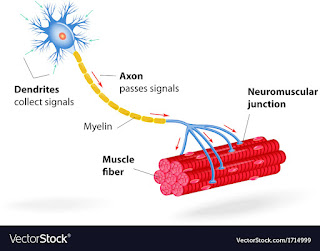Nature Visualization, health and ecotherapy research
Nature guided imagery is more effective than guided imagery based on urban settings. A study published by Frontiers in Psychology assessed the effects of two different types of guided imagery to learn if one was better than the other (1). To qualify for the study participants had to be 18 years of age or older, and they had to suffer anxiety symptoms. A score for their anxiety was obtained before and after the guided imagery.
Participants had to do both types of guided imagery (the nature-based
imagery and the urban type of imagery). A specially trained psychologist
collaborated with the researchers. The study concluded that both types of
imagery were of benefit to reduce anxiety, but nature-based guided imagery was
found to be even more effective than the urban-based imagery (1).
Yoga is a mindful holistic practice that
awakens the awareness of union and connection with nature. Hence, yoga
acknowledges the need to establish a healthy relationship with the environment.
From an ecotherapy perspective the mental and physical health of a human being
is connected with the health of the earth and its natural ecosystems (2). The
preservation of ecosystems, the quality of air, water, soil and climate are all
related to human health.
Interaction with nature is also of
vital importance to support cognitive and emotional health (3, 4, 5).
Several studies have shown that contact with nature helps to prevent
stress and soothe anxiety. Even viewing scenes of nature is associated with
increased levels of serotonin. Serotonin has an antidepressant effect in the
body. Viewing scenes of nature also reduces aggression and post-stress anger.
It should not come as a surprise that there is more crime in cities with less
green spaces (10). Studies have shown that a simple walk in nature can reduce
anxiety, enhance the mood, and improve memory. EEG devices were used to study
brain waves during a walk in nature compared to walks in indoor spaces (6, 7).
Participants were more likely to experience meditative-like brain waves and to
exhibit less frustration if they were walking in a green space compared to a
shopping street or a busy business area. Research also showed better cognitive
performance when the walk is done in green spaces instead of indoors.
Flowering plants and foliage in
hospital rooms were associated with better physiological responses, greater
patients' satisfaction and the use of less pain medication when compared with a
control group of patients (2).
The use of green care as an aspect of ecotherapy is also emerging as a
field of research. Green care includes care farming, animal-assisted
interventions, social and therapeutic horticulture, healing gardens and
facilitated green exercise (2, 8).
A systematic review and meta-analysis published by the International Journal
of Environmental Research and Public Health found that nature-based mindfulness
has positive effects on physical, psychological and social conditions (9).
According to their research nature-based mindfulness was also found to be
superior to non-nature mindfulness (9).
When human health is understood from an integrated perspective that
includes social and environmental interactions, the science of medicine may be
more open to address public health issues that require research, actions and
policies to protect both human health and the environment.
References:
1)https://www.ncbi.nlm.nih.gov/pmc/articles/PMC6176042/
2) https://www.ncbi.nlm.nih.gov/pmc/articles/PMC6085576/
3) https://www.apa.org/monitor/2020/04/nurtured-nature
4)https://advances.sciencemag.org/content/5/7/eaax0903
5) https://journals.plos.org/plosone/article?id=10.1371/journal.pone.0155614
6)https://www.tandfonline.com/doi/abs/10.1080/16078055.2018.1445025
7) https://www.tandfonline.com/doi/full/10.1080/19438150903378425?src=recsys
8)https://www.ncbi.nlm.nih.gov/pmc/articles/PMC5406676/
9) https://www.ncbi.nlm.nih.gov/pmc/articles/PMC6747393/
10) https://neurosciencenews.com/greenspace-crime-reduction-15813/




Comments
Post a Comment
Thank you for commenting.